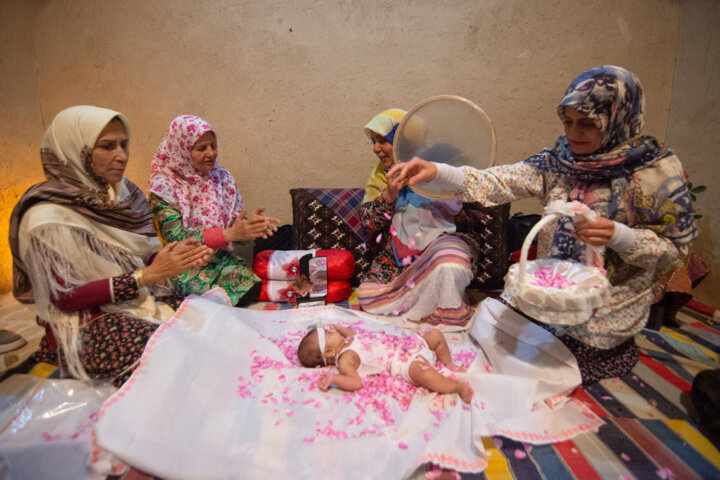Tehran – The 16th edition of the Gol Galtan National Festival (literally means rolling flowers) will take place from May 7th to 9th in Amyrie, central Semnan.
Mostafi Foadian told IRNA that social festivals date back hundreds of years ago usually take place in May when roses are in full bloom.
He implemented the tradition of Golkinan (Flower Picker), held traditional culinary festivals, celebrated awards, presented awards, held scientific conferences on Mohammadi roses and Golgartan, held folk songs festivals, and conducted the tradition of Golgartan as a festival program.
The Golgartan Festival was engraved under No. 177 as the first and second national intangible heritage in Semnan, following the 2010 Knowles Festival.
With a population of over 3,000, Amirieh is located 20 km from Dongang and 90 km from Semnan in Semnan province. Amirieh is the origin of the Gol-Ghaltan Festival.
Hosting exhibitions of local handicrafts and souvenirs, playing local games and music, and touring the city’s historic locations is one of the festival’s programs.
Gol Galtan is rooted in an old Iranian mythology known as the “smiling flowers.” There, pure and sacred man promised the birth of a child.
People in this area believe that babies rolling through the roses bring joy and refreshment, yet not contaminating them and freeing them from illness. The freshness of the petals protects the baby’s skin and promotes happiness.
The baby lies gently in the first spring of his life, especially on the petals of the scented flower, famous for the rose of Mohammadi.
Pink roses bloom in the area during the spring, preparations for the Rosewater Distillation Festival, known as “Gorabgiri”, are underway, with women’s families, mostly babies’ mothers, grandmothers and aunts performing the Golgartan ceremony.
A few days before the ceremony, the woman visits the rose garden early in the morning, selecting and collecting flowers, and reciting Quran poems and poems. The petals are then carefully separated and placed in a bright white cloth.
On the day of the ceremony, one of the grandmothers takes the baby to the bath. Sometimes, baby’s hands are decorated with henna in certain areas. After drying, the baby is placed in the flowers on a cloth, and the petals pour gently over them, wishing for health and longevity.
The woman then grabs the four corners of the sheet, rolls the baby between the petals, recites religious songs, shakes the sheet back and forth, believing that the soul will be clean, leaving the child healthy and fresh.
Once the baby is placed on the floor, place the gift near the fabric. Sweets and tea will be provided to close the ceremony.
After the ceremony, the mother drys the petals in the shade, preserves them for the future, and often places the dried petals on a prayer rug.
KD

